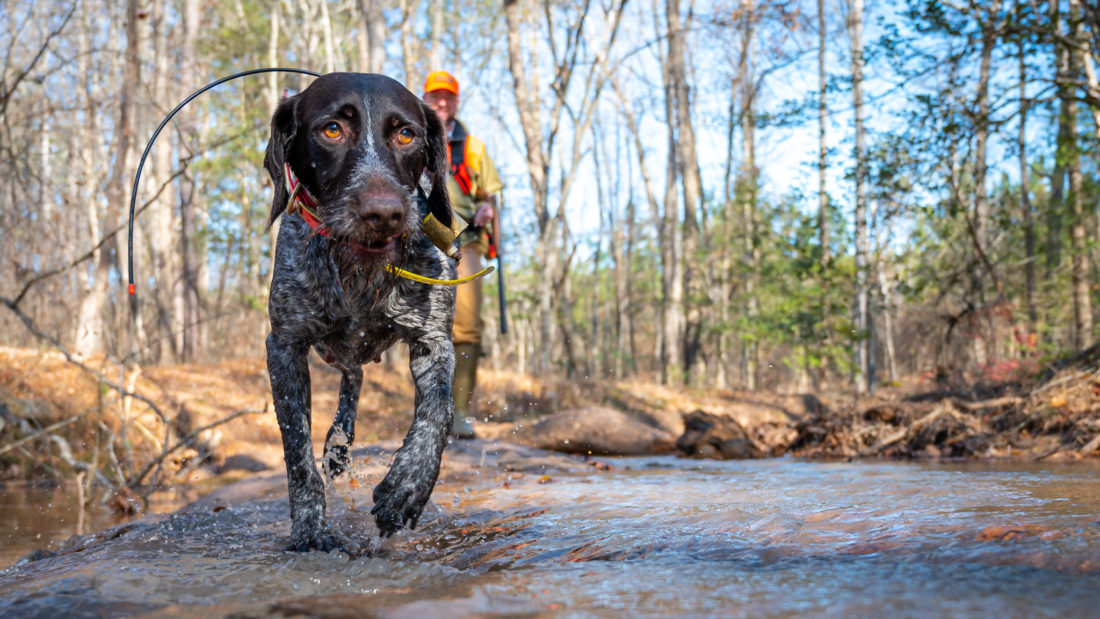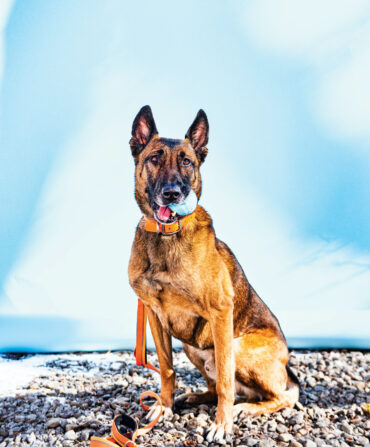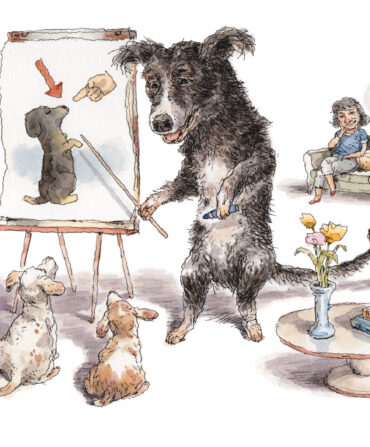The hottest club scene in the South these days may not be in a revamped warehouse in some hip new urban arts district. It may be in the nearest mucky swamp thicket. Despite the gloom and doom about quail hunting over the last few decades, interest in bird hunting is growing across much of the region. License sales are up in some states, and many wildlife managers report seeing increased interest in bird dogs and bird hunting. A fair bit of credit can go to the American woodcock, a bog-loving migratory gamebird that’s turning out to be a stand-up stand-in for bobwhite quail in much of the South. A current craze over pointing dogs—think German shorthaired pointers and more obscure breeds such as pudelpointers and vizslas—is providing some gas, too. And the North American Versatile Hunting Dog Association is right in the thick of all of it.
NAVHDA is a training and testing club devoted to what it defines as the versatile hunting dog, one “that is bred and trained to dependably hunt and point game, to retrieve on both land and water, and to track wounded game on both land and water.” The non-profit organization seeks to support dog owners who want a do-it-all hunting companion. NAVHDA currently recognizes thirty different breeds of versatile hunting dogs. Club chapters host monthly training events and regular testing events similar to better-known field trials for hardcore duck retrievers and bird pointers, but with a critical difference: The competitions aren’t competitions at all.
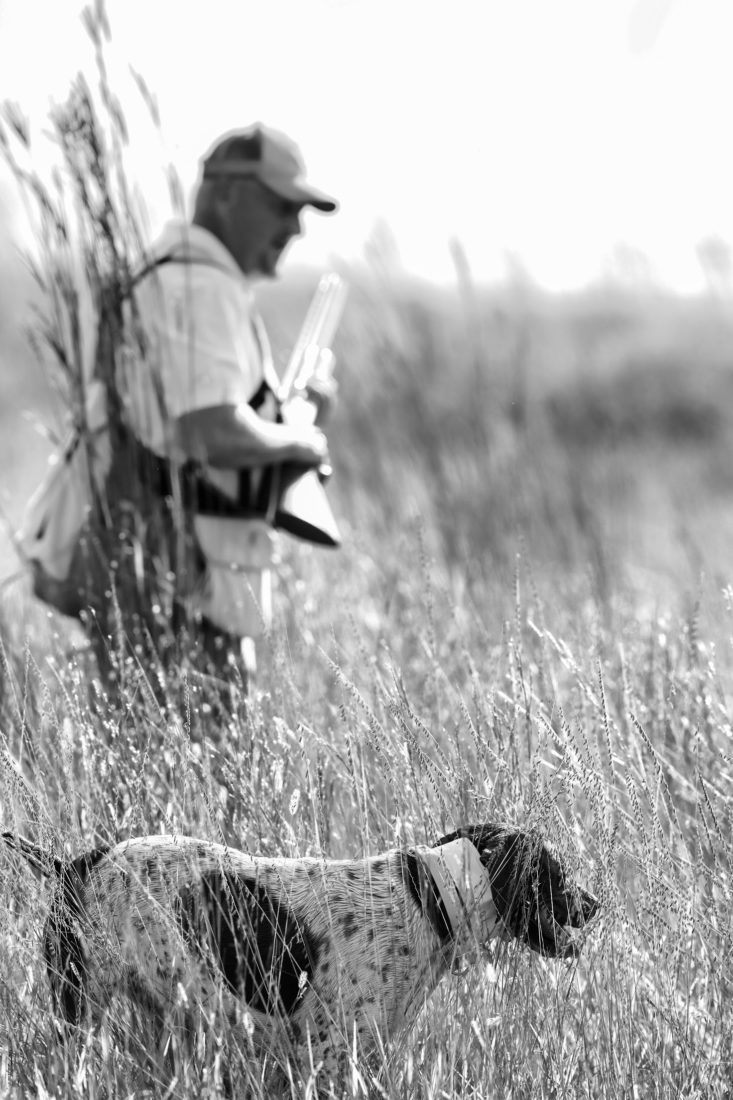
“Our events are tests, not trials,” explains Mike Neiduski, an administrator at Elon University in Burlington, North Carolina, who serves as both social media editor for NAVHDA and an accredited judge. “In the field tests, we judge each dog against performance standards that simulate upland bird and waterfowl hunting situations, so it’s not really a competition. We want owners to understand how their dog is progressing, not whether it was better than some other dog on a given day.” In NAVHDA’s Natural Ability test, for example, the emphasis is on real-world skills. Did the dog search for game? Did it point? Did it track? Will it swim to do what it needs to do in the hunt? Meanwhile, monthly training weekends are fun, lower-key events where even non-recognized breeds such as Labrador retrievers and Boykin spaniels are welcome. “These trainings and tests are designed to help the hunter and the dog get it done in the field,” Neiduski says, “but there’s a strong conservation ethic that runs throughout all of NAVHDA. Finding every bird is the cornerstone of ethical hunting.”
The group’s formula appears to be working. National membership has doubled in the last six years, and the association now has more than eighty-five chapters across the U.S. and Canada, with a number in the South, including in Virginia, North Carolina, Georgia, Florida, Texas, and Maryland. Recently, Neiduski was the featured guest on a Project Upland podcast, speaking about bird hunting in his home state of North Carolina and the opportunities and challenges for those new to the sport.
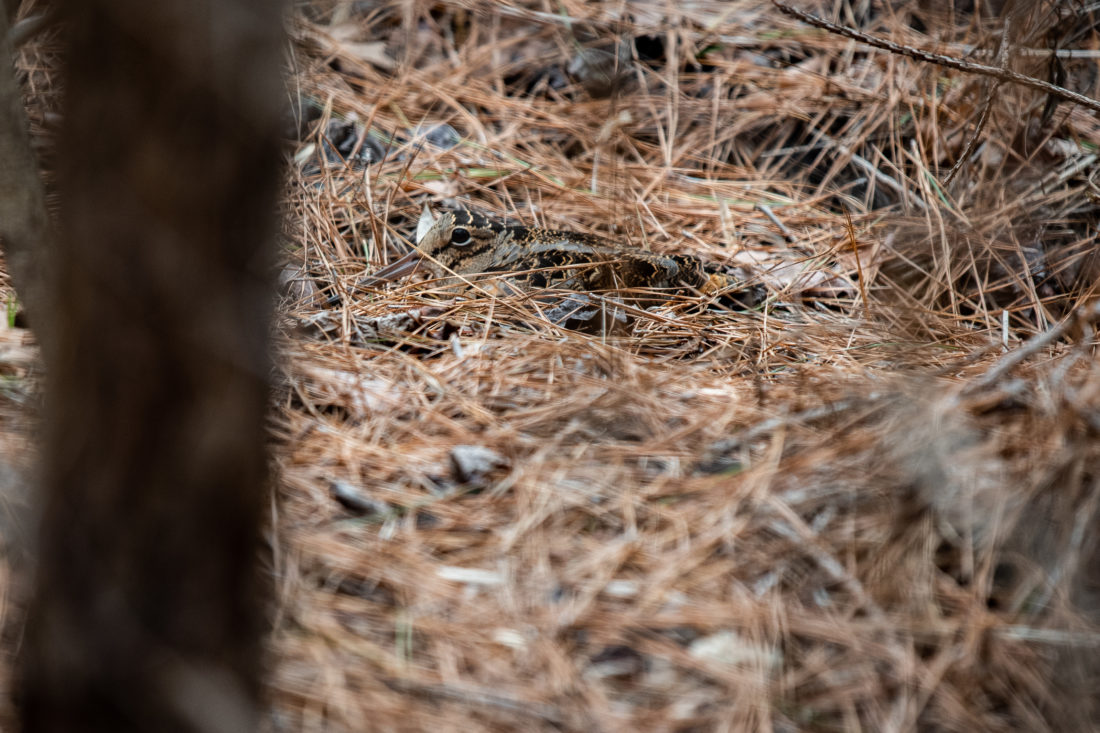
“Research shows that bird dogs are a portal to hunting for so many new hunters,” he explains. “They want to build a bond with their canine companion and share this collective experience in the outdoors. But there’s a steep resistance threshold new hunters face. How do I train a bird dog? Where can I go hunt? Join NAVHDA with a puppy and you are immediately around dozens of folks who are passionate and excited about new people coming into the fold.”
The woodcock is a perfect pairing with the budding bird hunter. They hold tight to pointing bird dogs, thrive on many public lands, and are often surprisingly close at hand. “When the migration is on and you know where to go, woodcock are very available and a very accessible bird to hunt in the South,” Neiduski says. Provided you have a dog up to the task. And he knows just where you can turn for help with that.


